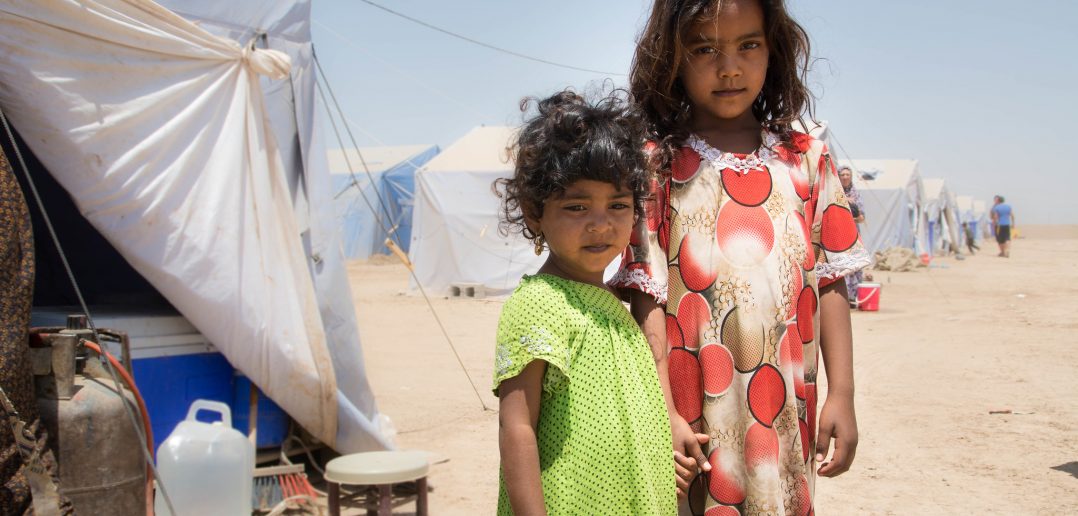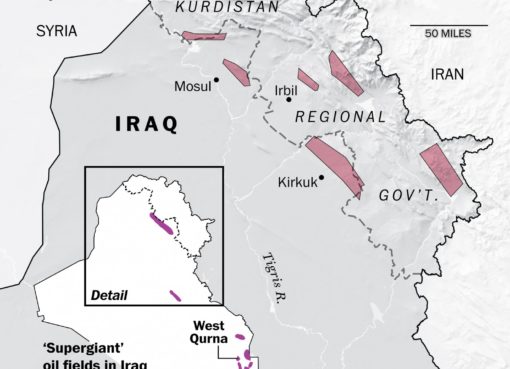SEATTLE, Washington — Iraq has been facing some extremely difficult times for nearly two decades now. Despite the success in ending the reign of Saddam Hussein, many people view the Iraq War as having been ineffective and ultimately causing more harm than good. While the reign of ISIS in the country has ended, there is still a long way to go on the journey to economic recovery in Iraq. Many organizations are taking steps to aid in recovery and greatly reduce the number of people who live below the poverty line.
Iraq’s Economic Situation
According to the World Bank, the economic situation of Iraq has improved since the defeat of ISIS in 2017. The country’s casualty figures noticeably decreased by the end of that year. The World Bank expects Iraq’s GDP to grow by nearly 5 percent in 2020. The World Bank believes this growth is mostly due to the rise in crude oil production. Better rainfall, improved electrical production, a growing public wage bill and an increase in public consumption also are important factors.
Despite the apparent progress made in bringing about economic recovery in Iraq, the World Bank stresses that the reconstruction program is still a slow process. There are continuing problems with the execution of the public investment. Although the World Bank expects Iraq’s GDP to grow in 2020, it will likely decrease to around 2.7 percent in 2021. This is because of an expected weakening in prices and exports in the oil markets, including increased imports and lower prices.
UNICEF’s Impact
The United Nations Children’s Fund (UNICEF) has been a key organization that has paved the way for economic recovery in Iraq. According to its website, UNICEF first established an office in Iraq in 1984. From 2003 to 2008, it provided emergency access to water and sanitation, primary healthcare, education and child protection services. Since 2014, it has been working with partners to provide aid and support programs for children and their families.
In 2016, UNICEF launched the Country Programme Action Plan (CPAP). CPAP is a four-year framework that outlines the collaborative efforts of UNICEF and the Iraqi government to improve the lives of the country’s children. Through CPAP, UNICEF aims to help the Iraqi government strengthen social services for children. It is working on improving access to water, sanitation, nutrition and hygiene services to reduce infant and child mortality. This also includes supporting children to return to school and protecting them from things such as violence and exploitation.
Iraq Recovery and Resilience Programme (RRP)
In 2018, the United Nations launched the two-year Iraq Recovery and Resilience Programme (RRP). The purpose of this program is to actively bring about improvements in the daily lives of Iraqi citizens at the beginning of the reconstruction process as opposed to waiting to benefit from infrastructure projects and structural reforms. RRP is meant to be a “nexus framework.” The program builds on the efforts of various humanitarian partners in supporting families displaced by the conflicts in Iraq. RRP also reportedly builds on the efforts by the Iraqi government to stabilize the parts of the country that were liberated from the Islamic State of Iraq and the Levant (ISIL).
The U.N. website states that RRP has nine components in helping to bring about economic recovery in Iraq. Three of these components focus on communities at risk of facing violent extremism through measures to restore trust in the community and the government as well as open up economic opportunities. Meanwhile, six of these components emphasize decentralizing basic services, promoting sustainable returns and providing support to survivors.
The Oil Industry
In May 2019, Iraq’s oil minister Thamer Ghadhban stated that the Iraqi government was working to expand its oil industries in ways that include “building more refineries and investing in southern gas fields and export routes.” Ghadhban also stated that Iraq had contracts with 10 major international oil companies. Their goal was to produce an increase of at least two million barrels per day. As of May 2019, Iraq has become the second-largest producer in the Organization of the Petroleum Exporting Countries (OPEC). Oil provides around 85 percent of the Iraqi government’s revenue.
Despite the efforts made by Iraq to improve its oil, Ghadhban also shared that the Iraqi government plans to diversify its economy. This would also help ensure less reliance on the oil industry. Additionally, the government hopes to invest in the private sector and attract more foreign investors. Beyond this, the Iraqi government also plans to rely more on electricity and gas. According to Ghadhban, a heavy reliance on oil is unhealthy, so focusing their economic efforts on other channels is likely a good way of helping to ensure economic recovery in Iraq.
Important progress has been made on the road to economic recovery in Iraq. However, there are some obstacles that need to be taken into account. Regardless, the fight to improve the situation in Iraq can extend beyond the efforts of the government. Around the world, people can make a difference too. Efforts such as donating to organizations like UNICEF or lobbying with political leaders are extremely impactful.
Source: Borgen Magazin,
https://www.borgenmagazine.com/the-road-to-economic-recovery-in-iraq/








Comment here